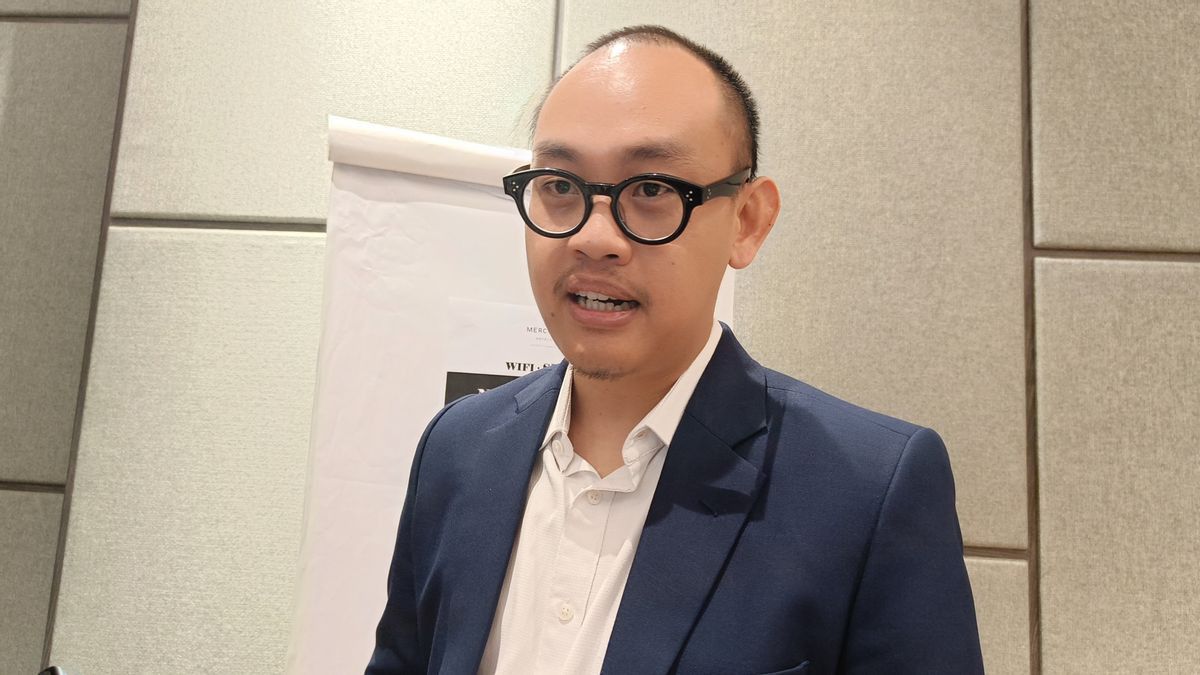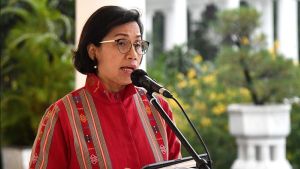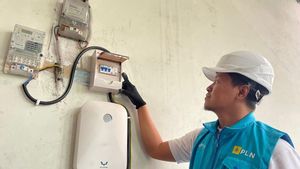JAKARTA - Executive Director of the Center of Economic and Law Studies (Celios) Bhima Yudhistira stated that Indonesia's economic challenges will be seen in the third and fourth quarters of 2024.
"If the economy grows 5.05 percent year on year/yoy (in the second quarter of 2024), actually the challenges have not been seen now or seen in the second quarter yesterday, but challenges are seen in the third and fourth quarters. Why? Because the economic pressures begin to appear in the third quarter. One of them is the Purchasing Managers' Index (PMI) manufacturing which has been seen in an unexpansive condition or below the 50 mark, "he said as quoted by ANTARA, Tuesday, August 6.
In terms of household consumption, the purchasing power of the middle class is said to be still weak in the second quarter of 2024.
Moreover, he continued, there were no events that were then able to encourage household consumption in the third quarter of 2024, as in the first and second quarters, they still enjoyed the influence of Eid al-Fitr and Eid homecoming.
The mining and excavation sector also showed a slowdown from 9.31 percent to 3.17 percent yoy in the second quarter which was in line with corrections to various commodity prices, including nickel.
This is due to sluggish demand, especially from China.
For the construction sector, it still grew 7.29 percent thanks to the increase in the acceleration of the completion of the National Strategic Project (PSN), while the real estate sector was only able to grow 2.16 percent.
This achievement is in line with the Non Performing Loan (NPL) of People's Housing Credit (KPR) which began to climb since the beginning of the year.
Regarding government spending, Bhima stated that it was still falling drastically after the election from 19.9 percent yoy as of the first quarter of 2024 to 1.42 percent yoy.
The indication that causes this is the adjustment of social assistance (bansos) after the election contributes to the weakening of government spending.
Regarding export and import performance, it was reported that they were still growing positively yoy in the second quarter of 2024, which was 8.28 percent and 8.57 percent, respectively.
However, export contributions to Gross Domestic Product (GDP) compared to the first quarter of 2024 decreased from 22.9 percent to 21.4 percent in the second quarter of 2024.
Based on this data, he provided a number of efforts to keep economic growth going.
The first is to postpone Value Added Tax (VAT) by 12 percent and reduce the VAT rate to 8-9 percent to provide a domestic consumption stimulus, considering that the upper middle class tends to hold back excessive consumption.
"Even if they spend money," he said, it would be directed at investment products
Second, ensuring that there is a spillover or the impact of infrastructure projects that are being boosted at the end of the period of President Joko Widodo, especially in the private sector and Micro, Small and Medium Enterprises (MSMEs).
The next effort is to encourage more quality investment, which means to absorb more labor and have better environmental standards and protection for workers.
It can be seen that the large amount of spending on infrastructure has not been correlated with increasing competitiveness in the manufacturing and higher quality investment sectors. So what we need is more labor investment of course of quality as well, in terms of environmental standards and better worker protection," said Bhima.
Then, the rupiah exchange rate is said to have to be maintained by encouraging an increase in the Export Results Fund (DHE).
If needed, capital control to detain DHE for 9 months at the domestic bank as an emergency response if the exchange rate reaches IDR 17 thousand to IDR 17,500 per US dollar.
SEE ALSO:
Finally, the government is deemed to have immediately issued a special policy package in the labor-intensive industrial sector in the form of a 70 percent electricity tariff discount, tightening imports of finished goods that have local substitutions, special low-interest loans for industry, and imposing employee Income Tax incentives (PPh) borne by the government until 2025.
"That (the implementation of PPh incentives) can be one of the stimuli, so that the money that should be paid to taxes can be used for consumption," said Bhima.
The English, Chinese, Japanese, Arabic, and French versions are automatically generated by the AI. So there may still be inaccuracies in translating, please always see Indonesian as our main language. (system supported by DigitalSiber.id)
















